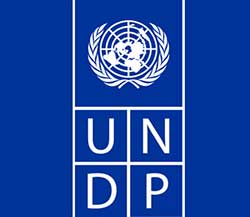As part of its EVD response programme, a UNDP Technical Team set up to oversee the autoclave installation has completed phase one of the delivery and installation of six autoclaves at medical facilities across the country.
A statement issued by the UNDP in Monrovia on Tuesday said with the delivery and installation of these pressure chamber and sterilized equipment, hospitals like the Tellewoyan health facility in Lofa County, C.H.
Rennie Hospital in Kakata and Phebe in Bong, now have a machine to help manage medical and non-medical wastes.
The other benefiting hospitals are Jackson F. Doe in Tapitta, Nimba, JJ Dossen in Maryland as well as ELWA, Redemption and John F. Kennedy hospitals in Monrovia.
It added that the project is part of UNDP’s support to health recovery, helping to ‘build back better’ following the devastating Ebola outbreak, ensuring that clinical wastes are sterilized and disposed of in an eco-friendly
manner throughout the country.
Meanwhile, the second phase of the project has commenced with the waste management training for over 150 medical staff at the designated health facilities on the operation, maintenance and use of the autoclaves that have been installed at the six medical centres.
The training led by Professor Babacar Ndoye, a UNDP healthcare waste management specialist and Mr. Victor Kwoh, a local consultant, targets doctors, nurses, administrators, maintenance personnel.
So far theoretical and practical training has begun at CH Rennie in Margibi, Phebe in Bong and Tellewoyan in Lofa.
The package for the installation of autoclaves comes complete with technical assistance for installation, staff training and management of the autoclaves in addition to generators and shredders. UNDP has invested close to $1m in this project so far.
Manufactured in South Africa, this technology presents an alternative to burning medical wastes in open pits and incinerators which produce dangerous smoke and other hazardous emissions causing a great deal of air pollution and a great risk to health workers and neighbourhoods.
The machine is a pressure chamber sterilized equipment that subjects wastes to high pressure saturated steam at 121°C (249°F) for around 15–20 minutes depending on the size of the load and the contents, the statement added.

